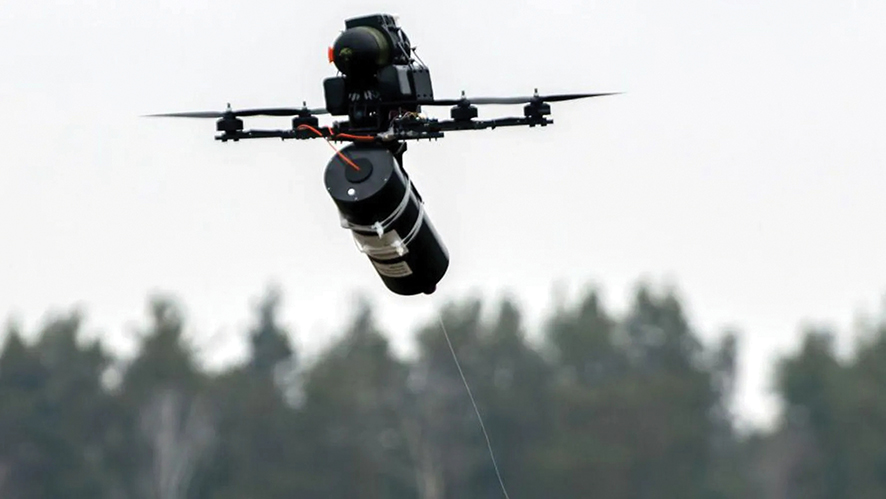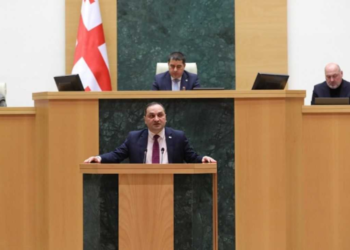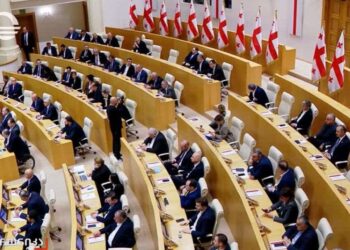In a week marked by continued escalation and growing political tensions, the conflict between Russia and Ukraine has once again underscored the scale and complexity of the war that has now raged for over two years.
Early Wednesday morning, the Russian Ministry of Defense reported a major defensive operation in which its air forces destroyed or intercepted 112 Ukrainian drones in just three hours. These drones were reportedly concentrated over the central and southern regions of Russia, part of what has become an almost daily exchange of drone attacks between the two nations. In a related incident, Moscow Mayor Sergei Sobyanin stated that six Ukrainian drones were intercepted on route to the Russian capital, and that recovery teams were currently assessing drone debris that fell across parts of the city.
A new breed of drone technology is changing the dynamics of the battlefield, the BBC reports. Ukrainian and Russian forces are now deploying drones that operate via fiber optic cables—an innovation designed to counter electronic warfare. These drones carry reels of cable stretching for tens of kilometers, tethering them directly to the pilot’s controller on the ground.
Unlike traditional drones that rely on radio signals, these fiber-linked aircraft transmit video and commands entirely through the physical line, making them virtually immune to jamming. “Because there’s no radio signal, electronic interceptors can’t touch it,” explains a drone engineer from the 68th Jaeger Brigade, known by the call sign Moderator.
Drone pilot Venia, also with the 68th, notes that Ukraine is catching up to a technique Russia adopted earlier. “The Russians started using fiber optic drones well before us, back when we were still running field tests,” he says. “These systems let us fly much lower than conventional drones. We can even navigate them inside buildings to search for targets.”
Their stealth and precision have already sparked nervous humor among frontline troops. “We’ve started joking that maybe we should carry scissors to cut the cord,” Serhii, an artillery operator, told the BBC.
The drone warfare continues on both sides. Overnight, Russia launched a barrage of 60 drones targeting several Ukrainian regions. The Ukrainian Air Force said the attacks left at least 10 people injured and caused significant damage to infrastructure. One of the hardest-hit areas was the city of Kramatorsk in eastern Ukraine, where three Russian airstrikes on Monday night cut off electricity for more than 850 residents.
Meanwhile, Russia’s military expanded its activities beyond Ukrainian territory, launching large-scale naval exercises in the Baltic Sea. The drills, the Russian Defense Ministry said, involve more than 20 warships, boats, and support vessels, along with 25 aircraft and helicopters and approximately 3,000 personnel. The timing of the drills has drawn attention from NATO allies in the region, adding to the heightened sense of tension in Europe.

On the political front, controversial remarks by former US President Donald Trump stirred international debate. In a post on TruthSocial, Trump claimed he had shielded Russia from “really bad things,” suggesting that “if it weren’t for me, lots of really bad things would have already happened to Russia, and I mean REALLY BAD.” The ambiguous comment prompted a sharp response from Russian security official Dmitry Medvedev, who countered on X, stating, “I only know of one REALLY BAD thing — WWIII. I hope Trump understands this!”
Trump’s comments followed earlier remarks in which he labeled Russian President Vladimir Putin “absolutely crazy” in light of the scale of airstrikes on Ukrainian cities. The Kremlin, in response, implied that Trump might be suffering from “emotional overload.”
Donald Trump’s frustration over the ongoing war in Ukraine—one he has repeatedly claimed he could end within 24 hours—boiled over this weekend following a deadly Russian drone strike that killed at least 13 people.
While Trump did not elaborate on the consequences he referenced, both The Wall Street Journal and CNN reported that he is now seriously considering a new round of sanctions on Moscow—possibly as early as this week. Speaking to reporters on Sunday, Trump confirmed he was “absolutely” weighing such a move.
The heated exchange underscores growing tensions as the war in Ukraine drags on, with high-level rhetoric further straining already fragile international relations.
Adding another layer to the diplomatic discourse, Keith Kellogg, the US special envoy for Ukraine, told Al Jazeera that Washington is awaiting a reply from Moscow after Trump reportedly provided Putin with “some guidelines a week ago.” The exact nature of those guidelines remains undisclosed.
In Europe, tensions simmered after Russian Foreign Minister Sergey Lavrov lashed out at German Chancellor Friedrich Merz, accusing him of “pretentiousness” following comments by Merz that several Western powers—including France, Germany, the UK, and the US—had lifted range restrictions on weapons supplied to Ukraine.
Compiled by Ana Dumbadze














